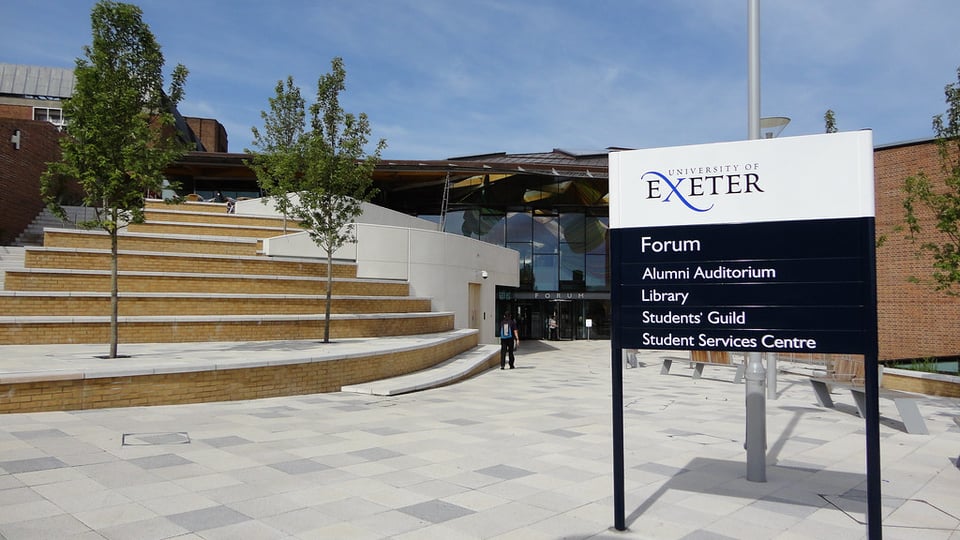University offers £10,000 for students to defer

Unprecedented changes to A-level examinations across the past two years have affected the university admissions process, causing an increase in the number of students applying to university and receiving the grades they need to firmly accept their first-choice offer. These changes have created a surge of students seeking to get onto capped university courses and concern over guaranteeing a place in student accommodation.
To cope with the overwhelming number of applications universities are encouraging students to defer their place until 2022, with the University of Exeter offering its medical students £10,000 and a year’s free accommodation to do so.
It is also anticipated that 100,000 international students will have trouble with travelling to the UK from ‘red list’ countries as a result of quarantine restrictions. Many students have felt compelled to defer because of these travel difficulties.
As a student, accepting an offer at university and the anxiety of results day are already daunting challenges to deal with. Now the added pressure from universities to defer puts students in an uncomfortable position, making it difficult to decide what to do.
Medicine at the University of Exeter
More students than ever have applied to the University of Exeter to study medicine from September, a reported increase of 20% from last year. The University is not prepared to deal with such a surge in applications, as it’s numbers to study medicine are capped by the government due to funding. In an effort to manage numbers, the University has written to students who have accepted an offer to begin studying medicine in 2021, asking them to postpone until 2022. Those students who agree to defer their course will receive a £10,000 bursary, a guaranteed place on their course and free accommodation for their first year.
This scheme proposes a challenging decision to students. Medical school lasts four to seven years, meaning a year setback is undesirable for many. However, the bursary alongside a secure place at the University and free student accommodation are all appealing incentives for prospective students. Additionally, some students may be considering taking a gap year anyhow, with the scheme perhaps making the choice easier.
Deferrals at Durham University 2020
No other university is set to follow the University of Exeter’s deferral scheme as of yet, however the news comes almost a year after Durham University’s deferral campaign in 2020. The A-level U-turn in 2020 saw that 15,000 students who initially missed out on their first-choice places because of downgraded A-levels actually met their original offer after the grades were reviewed. The University implemented a ‘Transition Support’ scheme in which students would be offered a bursary of up to £1,500 in the form of accommodation discounts. This scheme proved to be a success, seeing a drastic increase in undergraduate students deferring their applications to study for the 2021-22 academic year.
Deferral incentives like these from Durham University and the University of Exeter have both advantages and disadvantages for prospective students; deferring your place at university is not a decision to be made quickly. It can be difficult going into your gap year without a plan, if you don’t know what you are going to do with all that time it is important make sure you are deferring for reasons that will benefit you such as work experience or travelling.
International students in ‘red list’ countries
International students have been faced with the difficulty of moving to the UK during the pandemic. An estimated 100,000 students are set to move to the UK from ‘red list’ countries for the autumn term and there have been concerns that the number will overwhelm quarantine capacity in hotels. For many international students, the high cost of hotel quarantine and the uncertainty over online teaching will influence a decision to defer until 2022.
Whilst in the 2020-21 academic year visa concessions allowed international students flexible arrival dates and access to study online if there was a disruption to in-person study, it is unclear whether these concessions will continue into the new academic year. Though the Government has said it is engaging with universities to organise student arrivals ahead of the autumn term, there is still unease amongst many international students.
The number of students predicted to defer their place at university until 2022 means that there could be less places at university for the following year. The pandemic continues to cause unique complications for students which have never had to be considered before. Universities are working to support students in these times by devising new ways to cope with the pandemic’s difficulties, meaning that students are required to be more adaptable in their approach to university.



